
Andy Sparks, CEO of Holloway, on Living a More Conscious Life
We talk about using Notion as an operating system for work, escaping life's pinball machine, and note-taking as creating a relationship with your future self
August 12, 2019 · Updated January 30, 2026
Andy Sparks builds companies at venture scale.
He co-founded Mattermark, and is currently the CEO of Holloway — the startup rewriting the script on the world of traditional publishing.
For some, this might sound like a dizzying array of accomplishments, but Andy has developed a series of inspiring systems to make it all manageable, and to help him live a purposeful, ambitious, and highly-directed life.
I came away from this conversation so inspired. Here are a couple of the highlights:
- How writing things down helps him increase his self-knowledge
- How he uses Notion as the operating system to run Holloway, to help him organize everything from weekly agendas and todo lists to the company’s values and mission
- How note-taking is a process of creating a relationship between your present self and your future self
- How he collects resources to make him smarter in his Evernote
- How tattoos can be the ultimate form of a note — they’re literally permanent notes on your skin
- How he always sure that his calendar always reflects his priorities
Dan Shipper: What tools do you use and how do you use?
Andy Sparks: I use a number of different tools to do this. The ones that I use daily though are:
- Evernote for personal knowledge management
- Notion for knowledge management at work
- Trello for project management at work (Notion isn’t powerful enough yet)
- Google Docs for large collaborative written efforts
- iA writer for writing
- ToDoist to keep track of my todos
- Google Calendar for my schedule
He does it to keep his commitments and to learn more from successful people
Dan Shipper: Why did you start building these systems and why do you keep doing it?
Any Sparks: I just like it. It brings me satisfaction. It's very practical, it helps me get things done, it's enjoyable.
It ensures that I don't forget things and so that helps me meet my commitments and makes sure I do what I say I’m going to do.
I like to read about people who are successful in some regard, whether it's as a musician or a poet or a business person, and the decisions they make to organize their lives in order to do work that they're proud of.
I like to learn from those people, and try their techniques on, and just see what happens. And in order to do that I write things down.
Building up his note-taking systems allows him to watch how he evolves over time, and live with purpose and consciousness
Andy Sparks: I've found it to be really rewarding keeping a bunch of stuff in Evernote over time because you can go back and look in the mirror of who you used to be versus who you've become. I think it's helpful to just be able to reflect on that.
But beyond just watching how I’ve evolved, writing things down — especially your values — is really important. It’s important because I think so much of being a human being, is that you're just responding to stimuli, like 98% of the time.
And so, I think writing things down as notes is a system of choosing the stimuli you would like Future You to respond to.
There's this trick that we play on ourselves, where we tell ourselves we're these conscious people that do everything deliberately and make all these purposeful decisions but we’re really just bouncing around like a pinball in the pinball machine of life.
But all of these note-taking systems are like designing your own pinball machine to bounce around in as opposed to bouncing around in whatever pinball machine you happen to find yourself in.
Dan Shipper: Yeah, yeah.
Note-taking as creating a relationship with your future self
Andy Sparks: And you can do this, make your own pinball machine, in different ways. Some big and some small.
It could be something super small like setting a reminder to water your plants every Monday to make sure they don’t die, or making sure you review your priorities every week and plan your calendar according to those priorities.
Or it could be something really big and permanent, even like getting a tattoo to remind you of something.
When I was 20 I got a tattoo on my side that says, "Most people would rather be certain they're miserable than risk being happy."
And, I thought it was cool then, but I had no idea how much it would affect me because at many points in my life after that it would come back to me in a profound way.
I'd get out of the shower at 24 and look at myself and be like, "I'm fucking miserable right now." But then I would look down, there would be this thing that Past Me had sent to Future Me, literally tattooed it in skin saying, "Hey this is important. Don't forget this."
That was so impactful for me that I did it again when I was at this really salient moment after I left Mattermark.
I got another tattoo on my forearm, and it’s a Bill Waterson quote that says, "The truth is, most of us discover where we're heading when we arrive." Basically, you have no idea how things are going to turn out.
I had no idea that starting Mattermark I would end up starting Holloway.
And so, things can feel so stressful in a moment, when you're not sure where they're going, but you just have to trust that you're going to get somewhere.
So I put that on my body because I said to myself, "I want to remember this moment, and I want to make sure that when future me gets caught up in the rush of another company, that I remember this."
Dan Shipper: That’s amazing. It feels like that is kind of the ultimate note taking tool — to write a note on your body...
Andy Sparks: Yeah. Yeah, it's like, "Hey this one is really, really important." Yeah, so that's one of the things I don't want to forget.
And so whether it’s an item on a to-do list or a tattoo on your body, it’s all pretty much the same. They’re all notes in different forms that let you build your own pinball machine for your life.
Dan Shipper: This is incredible. One thing that really strikes me is this reference to Past Me, and Future Me because I think so much of note taking is about creating your relationship with your future self.
Andy Sparks: Yeah.
Dan Shipper: And, it seems like some people have that relationship where they know their future self is going to want something and so they write notes.
Andy Sparks: Yeah that’s how I think about it too. When I have a thought I just want to put it somewhere so then later me can go in, catch it, and maybe do something with it.
On his personal Evernote
I have every note I've ever taken in a book. I have all my meetings with people in there. I have all these resource lists, like stuff related to design or business.
I have recipes. I have poetry that I've saved and I have speeches that I've given and thoughts that I have, which are just my really quick, I'm walking down the street and I need to write this down thoughts.
I have every journal entry I've ever written, which it turns out is almost 500 journal entries.
I have quotes that I find interesting. That's really cool because then any time I want to retrieve that information, I find that my recall is just superhuman almost.
It's nice knowing that I won't ever forget anything because it will be in there, and the search is good enough that pretty much when I want to find something, I can find it.
And, I found that this can be useful in a bunch of surprising ways, once you commit to the system for a while, but it's not obvious why this would be worth it until you put a lot of years into it. But now, I've been doing this since 2013, and now that I write a newsletter every week, usually there's a subject to the newsletter.
One week it was journaling and so, I just went into Evernote and typed in the word journaling and it turns out I'd mentioned that hundreds of times and I was able to go through there and find interesting things.
I typed in the word “coaches” because I was writing an edition of our newsletter, Good Work, on management coaches, and it turns out there was a quote that I have saved from a book on management coaches from Neil Stephenson's Seveneves four years ago that I was able to use in the newsletter because I had it all organized in there and that was so cool.
In my Evernote, I actually have a file in resources called System. And, one of them is my personal values where I've written down stuff that I think is really important and the people that I spend time with and myself.
I have another document actually called Things To Look For In A Partner — a romantic relationship. These are things I'm not willing to negotiate on, so when I meet someone I'm like, "Do they have these things?"
He uses Evernote to help him remember little details like people’s names
Dan Shipper: Okay, so let’s dive in, let’s see your Evernote
Andy Sparks: Okay. So, this is my Evernote. It’s organized using PARA: Projects, Areas of Responsibilities, Resources, and Archives. I mostly use the Resources folder in Evernote. [ Editor’s Note: for a description of PARA read this article. ]
The first notebook I have is Names To Remember. They're kind of embarrassing, but basically I have like 50 notes on places, and this is how I remember bartenders' names and everything like that.
I want to remember their name, because if it's a place I think I'll go back, and then I can be like, "Oh hey X."
I literally was at a bar last night and I hadn't seen the bartender in a long time, but he always gives me a free beer because I have this Calvin and Hobbes tattoo. And, I hadn't seen him in a year because the last place that he worked burned down.
I went in last night and I was like, I was like, "Oh man, your name is Chris, right?" And he was like, "Oh yeah, totally. I remember you."
So I think that’s a nice, small little way this helps me in my daily life.
He also uses it to collect notes on all of the books he’s read
Andy Sparks: Yeah. So, these are all notes from books I’ve read. I go and copy and paste everything out of my Kindle and I put them in here.
He journals frequently to help him understand and track what’s going on in his life
Andy Sparks: So, I journal, depending on the year, some years I've journaled more than 100 days out of the year, but usually in an average year, it's 50 to 100 times, and there are about 750-ish words each time.
I write in the morning and I find that I think by writing. It's just gotten to be second nature, so I can type almost as fast as I can think.
And, that really helps me when I'm not really sure what the problem is or I know that me and my business partner are butting heads and I'm not sure why. So I'll just write about it for an hour and usually we figure out what's at the bottom of it.
A colleague of mine, Rachel Jepsen, kept encouraging me to read this book on writing, Writing as a Way of Being. And as I began reading this book it kept blowing my mind.
Reading can be such a fun experience, especially when you turn a page, read something, and realize someone else has been way further down the path you’re on before.
The Jepsen argues that writing, when taught, most often centers on the output of the writing instead of what the process of writing can do for thought and self-discovery.
So I think I do a lot of writing as a process to help me think and understand myself better. That's really important.
I have a few other systems. God, I have too many of these.
Dan Shipper: This is amazing. I love it.
He stockpiles useful resources in his Evernote
Andy Sparks: Another big thing I do is collect resources that I can use for work and for life.
For example, I used to more design than I do now, so I have a bunch of resources in here on design. I have different guitar tabs in here too.
And then I have tons of business resources that I look at frequently.
And, this is kind of one of the power tools of this. You have to commit to the system a long time before it actually becomes that useful.
He shares some of these resources publicly using his Captain’s Log
Andy Sparks: And some of this stuff I collect into lists that I can easily share with other people.
For example a lot of people come to me and say, "I want career advice." So, I found I was sending an email to them so often with this stuff, that I should just make it public so I could send a link.
I do the same thing with the Startup CEO Reading List that I created which is the stuff that I really feel like are pivotal frameworks to understand for running a company.
And then, some of the stuff I actually publish on a public GitHub page, a public GitHub repo that I call my Captain's Log. And, in there I keep public reading lists and a common place book.
He does an annual Year in Review Reflection
Basically, every year I create a document that becomes like a year in review. I’ve done this for three years now, where I basically say: here are the things I'm thinking about, the big events in my life, media that I found that I really love, etc.
And then last year, at the end of 2018, I basically went through and read every single journal entry for the entire year. And, I realized that over 70 plus journal entries, I kept writing about the same 15 things.
So, that was really helpful for me to see that there were 15 things that I was dealing with every year, and maybe I should just try to systematically address those things instead of writing about it all year.
He uses all of this output to help him become closer to the people around him
Andy Sparks: I started sharing some of those things to this email list that I have. It's 20 people where it's just a BCC to everyone, and I'll just write out, “Here's something I'm struggling with, so the next time we have a beer, you have the background on what's going through my head and we can talk about it.” That's proven to be so cool.
Basically, the first one is on confidence. I just wrote it out and didn't really edit it. I sent it off to 20 or so close friends, and the whole idea is I have friends in other cities and people that are really meaningful in my life, and by doing this, every time that I send one of these, four or five people write back these seven or eight paragraph responses and it's just helped build really much closer friendships with everyone on the list, which has been really rewarding.
Dan Shipper: So, interesting. Okay, so let’s shift gears here and talk a little bit about the systems you use at work to run your company, Holloway.
He uses Notion to as his operating system for work
Andy Sparks: So, with work, the most important systems for me are Notion and Google Calendar.
And Notion is just crazy useful. Our whole team uses it. We spend hours in it every day it is basically my operating system for work.
The first section I have in Notion is literally a thing that just says, “Andy's Role”, which outlines what my job is at the company. And, I have eight bullet points on my role.
And, every Monday, the first thing that I do is I get in and I look at that, and I think, "Which one of these things do I need to focus on this week."
And then, the second thing I have in Notion is just a page with a bunch of different notes in it called Priorities. So I'll get into work on Monday morning and I open up a new document for the week, dated August X 2019, and then I just write down all of the stuff that I think is important for that week, just in bullets.
I'm like, "What's all the stuff on my mind? This conversation needs to happen, this thing needs to get done." And then again, I look at my role and I'm like, "I really need to focus on consistent voice," or whatever it is that's going at the time.
He makes sure his calendar reflects his priorities
And then, I break that out into, "All right, well who do I need to talk to, what meetings do I need to have this week in order to make sure the most important stuff on this list gets done."
And then, I switch to my calendar, and so that's where I'll go in and I'll be like, "All right, these are the meetings where I need to collaborate with people, or I need to get input before I make decisions," and that's how I set my calendar.
My calendar is color coded to make sure it’s easy for me to see how I’m spending my time. I had dinner with Keith Rabois years ago, and Keith had this phrase that I love, which is that “your calendar should reflect your priorities.”
And so, that's why at the beginning of each week, I write out the biggest priorities, and then I go and say, "Do I actually have calendar time that is dedicated to that priority?" If not, then it's not actually a priority, or I'm incorrectly allocating my time.
I have agendas, which are basically one on one agendas, so each person on my team, I take the priority and I show them, and I'm like, "All right. I need to discuss these four points with Courtney, or I need to discuss these with Josh, and so they go on a shared agenda document that I have with each person.
And then I have a private note document for each person on the team, and so for my co-founder for instance, I just have his the two or three biggest priorities pinned to the top of the document.
And then, any concerns that he expresses in our meetings throughout the week, I put on the list under that so I can make sure to work on those.
Dan Shipper: Awesome.
So, I have this template down here for one-on-ones, which I just pull up on my computer and I skim it to see if I’m getting all the information I need.
Dan Shipper: Wow. This is really extensive.
Andy Sparks: Oh my God, yeah. And this is just my own stuff.
Dan Shipper: Right. Right. Yeah.
Andy Sparks: Then, we have our values, mission, but then we also have every strategy for every part of the company in here. We can go look at what's our business strategy in all of this.
Dan Shipper: This is so cool.
Andy Sparks: Thank you!
Dan Shipper: Okay, we’re nearing the end of our time. Can you give me one or two books that you really love, but you think not enough people have read or have heard of?
Andy Sparks: Yeah. I love this book Mastery by Robert Green, and it's basically all about thinking of your career not in terms of how do I go get a job and work for somebody and make a bunch of money and the classic American, I don't know, narrative. But instead, it's like, "Hey, if you want to be really good at something, if you want to master a skill or a trade or a craft, how do people do that?" And, he walks through all these examples that are from way in the past, but also modern examples. Paul Graham is even one of them, and how these people apprenticed somebody who had already mastered a craft.
They spent a lot of time with them. They eventually have to get out from underneath the master and they have to study on their own, and there's these different phases. I just think it's an amazing way to think about a career. And, I regularly return to it. Several times a year I go back and I get new things from it each time as my career's progressed. Things that I thought were cool at a certain moment. It's been one of the most useful tools for thinking about my career and I think that a lot of people, it would be really beneficial if more people read that.
A second book that I really love is called The Righteous Mind by Jonathan Haidt, which is ... the subtitle is how good people are divided over politics and religion and it's sort of behavioral psychology background on just why do people get so angry of each other, when everyone pretty much wants the same thing. Everybody wants their family and their friends to be happy and healthy in faith, but somehow we just start in these feuds over silly stuff. What's the psychology behind that? That's just helped me chill out a lot.
And then, I would say my other one that I would recommend is called The Pleasure of Finding Things Out, by Richard Feynman. And, Feynman is actually ... Holloway was incorporated as Feynman Labs. And, a lot of what I like about Richard Feynman is that he has this idea where most people who consider themselves to be experts or even teach fields, actually don't know what they're talking about, but they know how to recite things and sound smart. But, if you ask them what something is at its core, they don't know.
One of my favorite things to do with people who are in business is that I'm like, "What's a company?"
What's a company? What is it? Tell me what it is. It's a hard question for people to answer and really nail down what it is, but yet, they've made that their entire skill and trade of their life, is company building, but they can't even really tell you what it is. And to me, that just represents a massive amount of intellectual sloth, to make something your field of craft over an entire lifetime, but to be able to really define what it is, just represents to me something that Feynman did really well, and he talks about it a lot in that book.
Dan Shipper: That's amazing. That's so great. Is there anything that you wanted to tell me or you think I should know that you haven't yet?
Andy Sparks: I don't know. This stuff is really fun to me. My pinball metaphor probably represents a lot of how I think. It's just that people are just, respond to stimuli most of the time and all of these systems are a way for you to design your own pinball machine to bounce around in. And, I wish people would tell you that when you're 17. So yeah, I think that's it.
Thank you for reading! You can find Andy Sparks on Twitter here, or check out his company Holloway here. We’ll be back soon with another edition.
The Only Subscription
You Need to
Stay at the
Edge of AI
The essential toolkit for those shaping the future
"This might be the best value you
can get from an AI subscription."
- Jay S.
Join 100,000+ leaders, builders, and innovators

Email address
Already have an account? Sign in
What is included in a subscription?
Daily insights from AI pioneers + early access to powerful AI tools
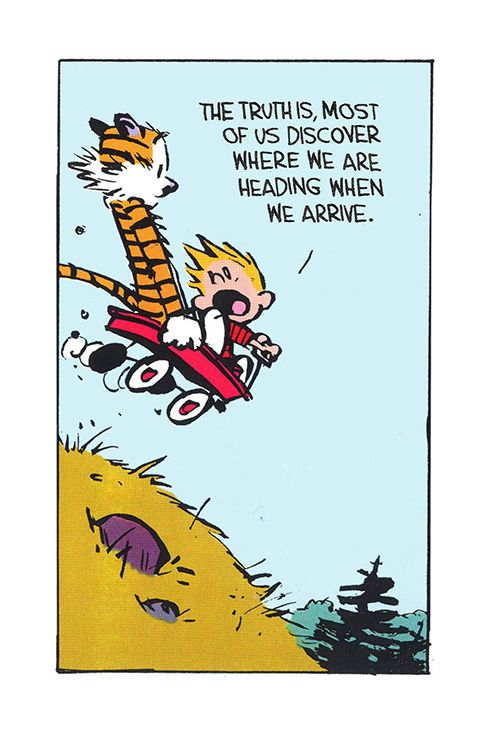
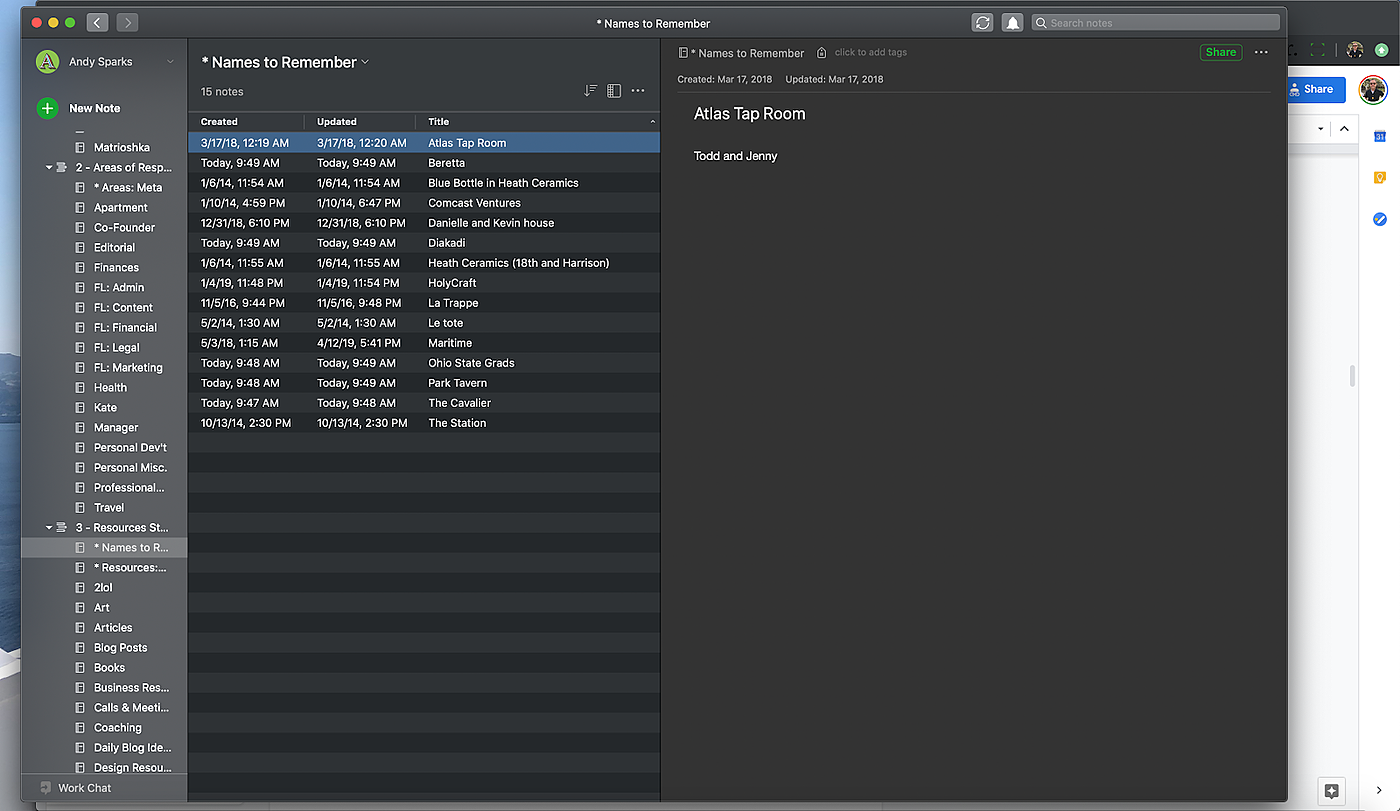
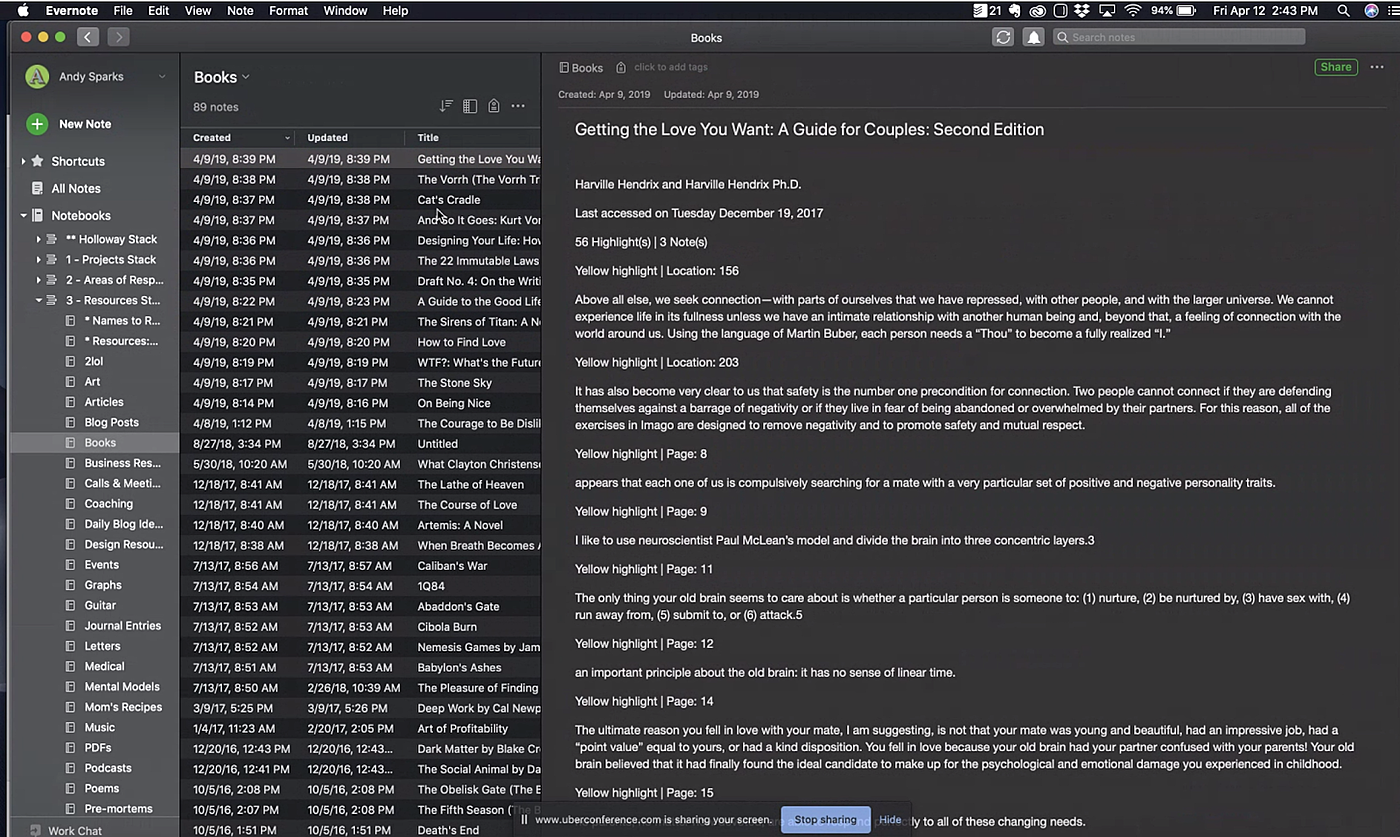
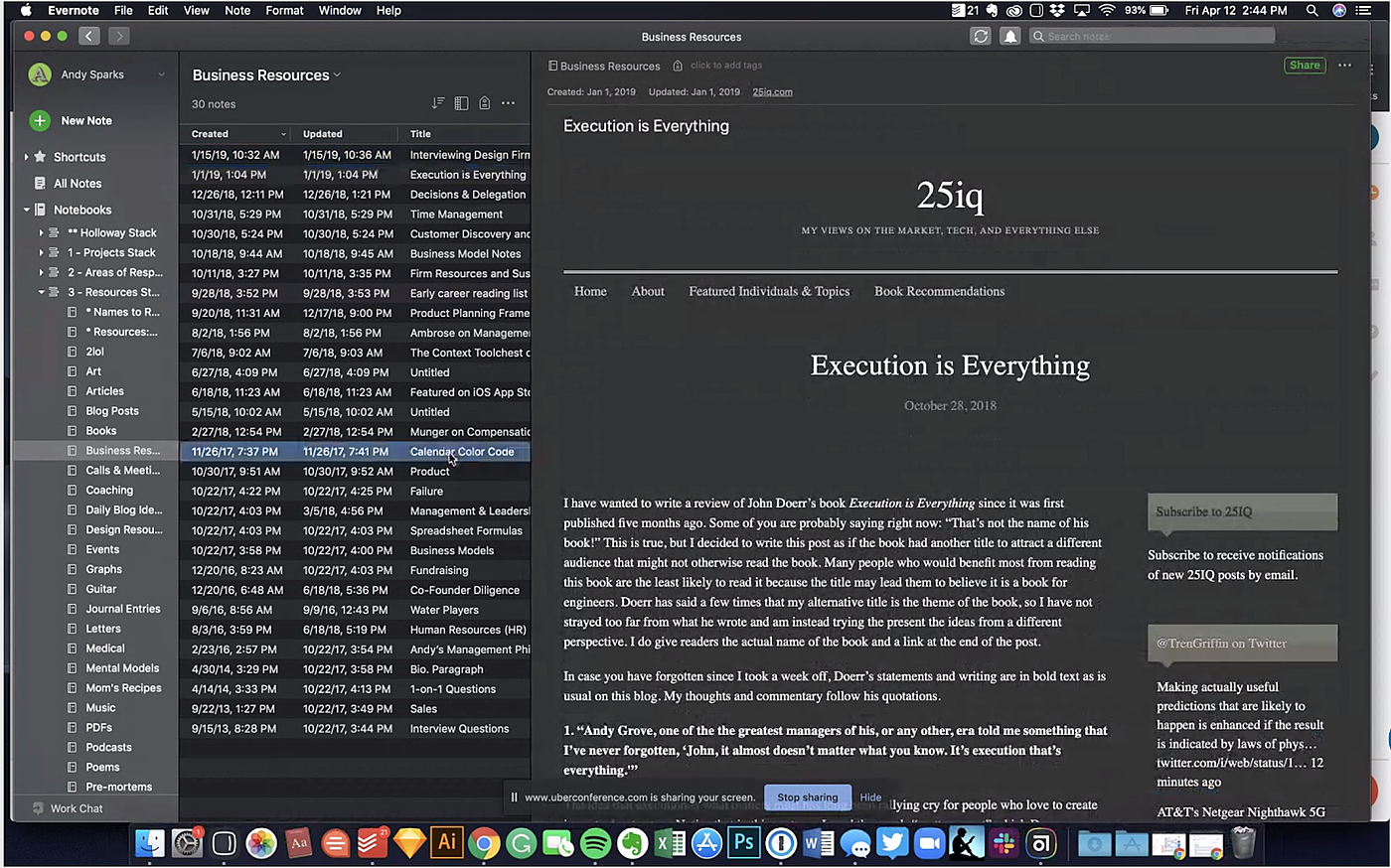
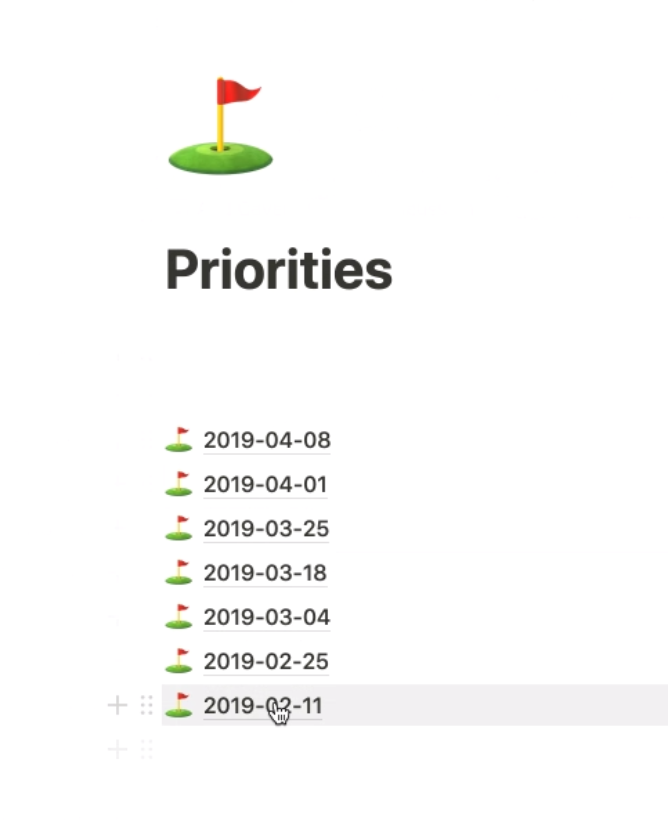
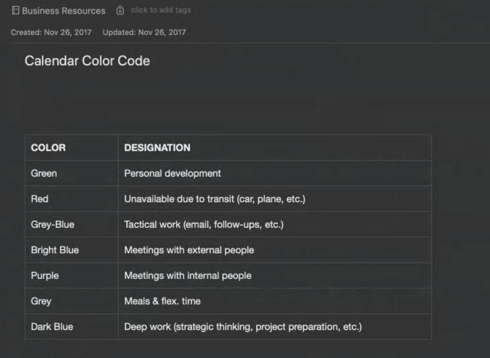
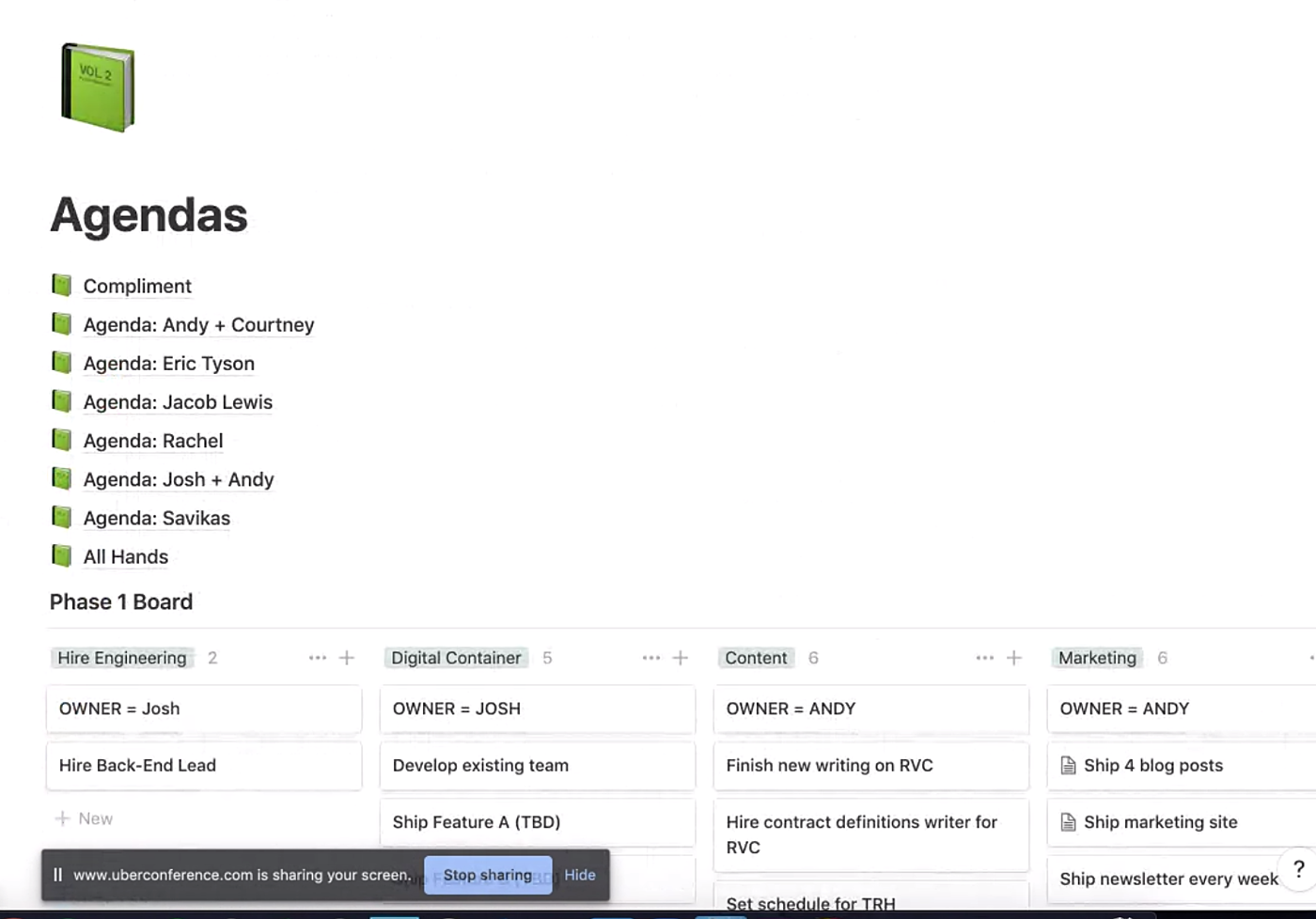
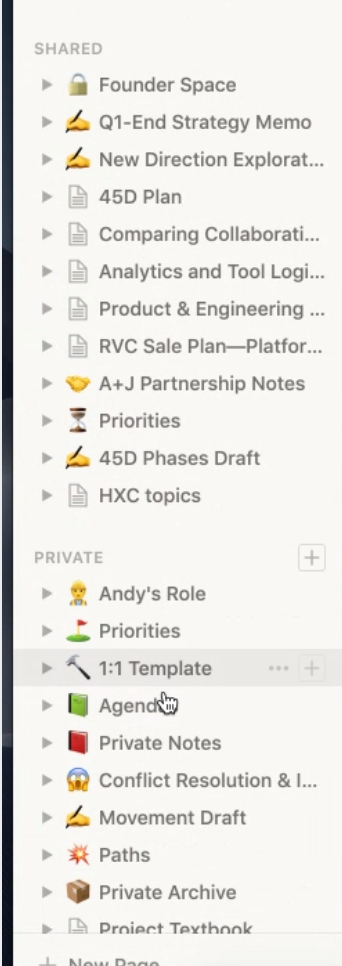
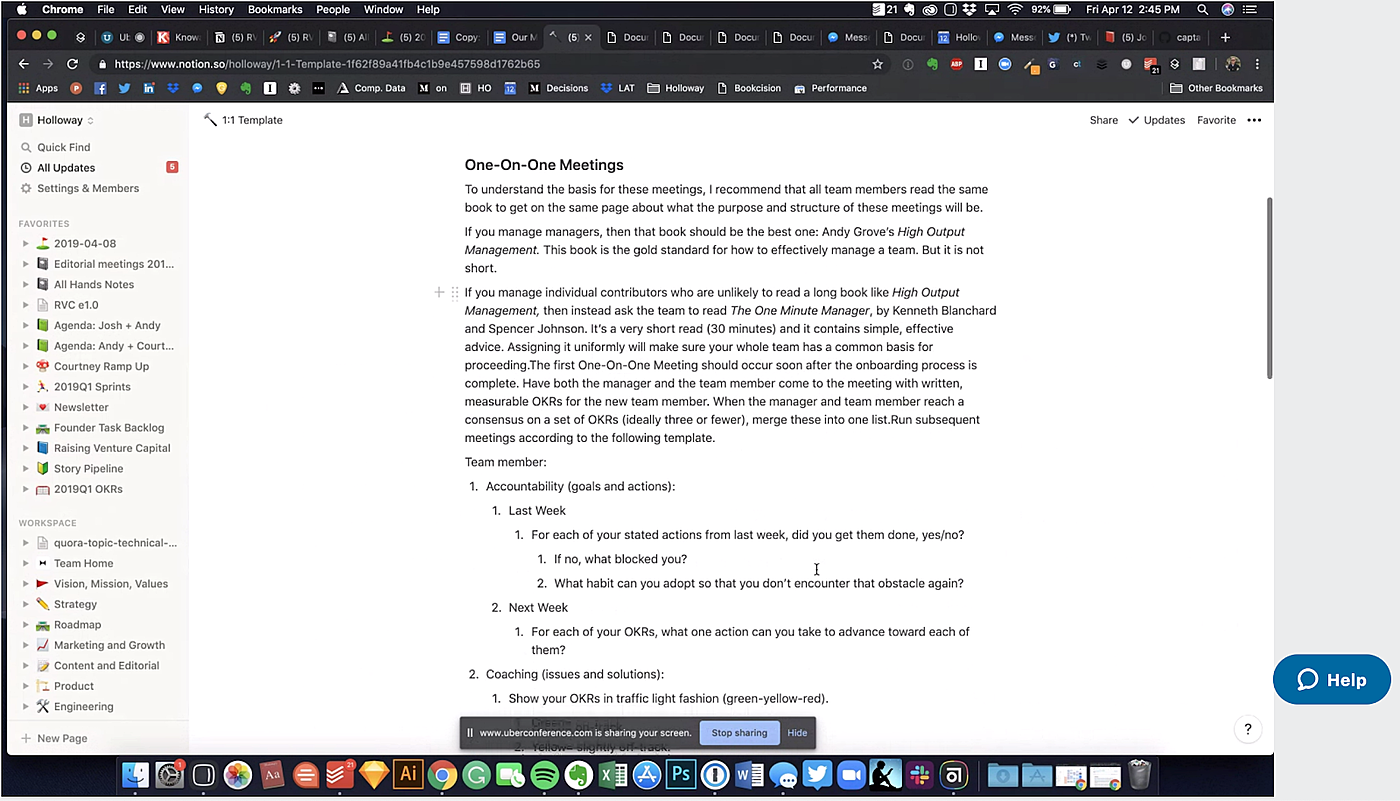
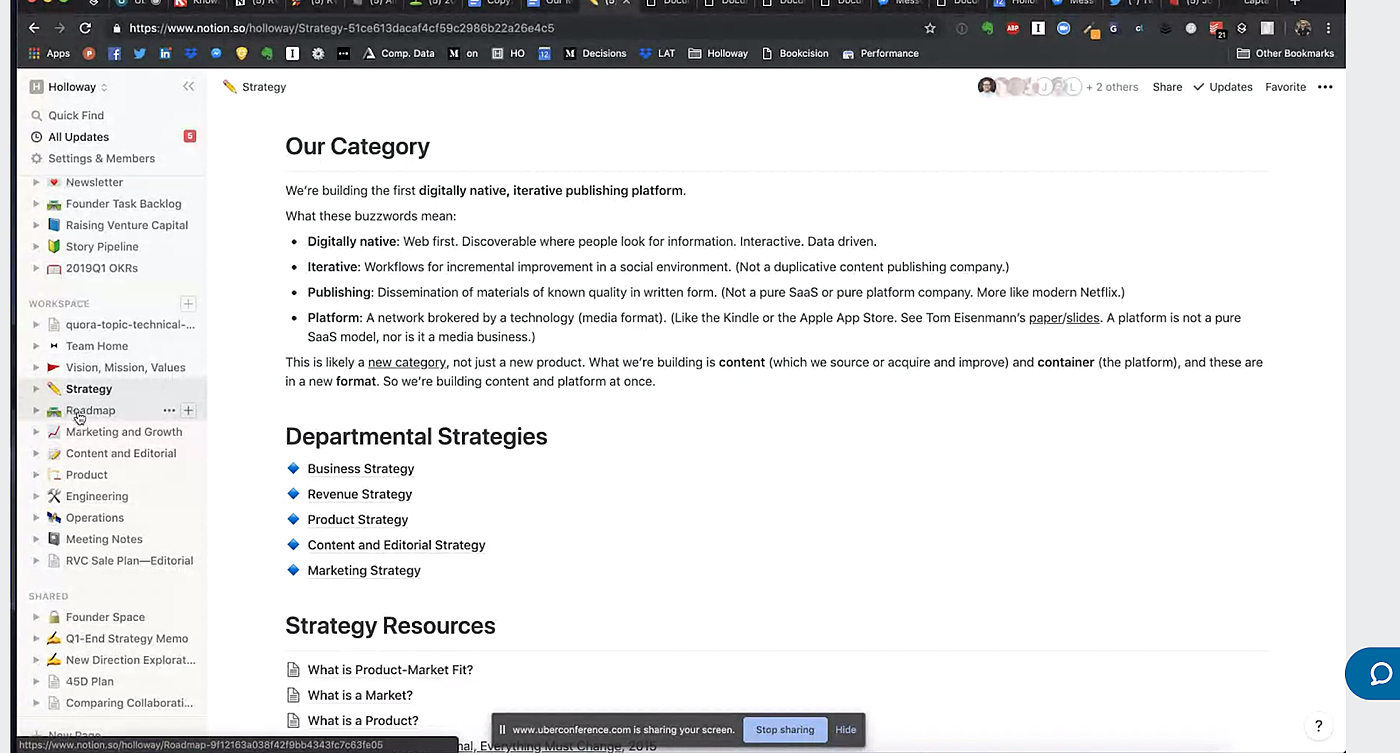
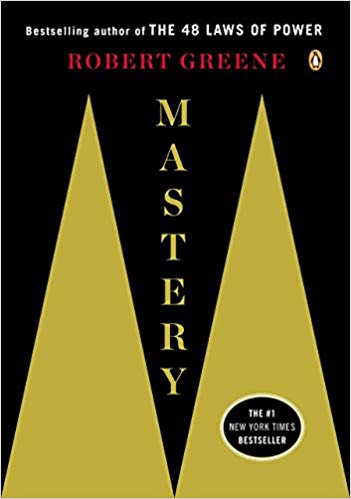
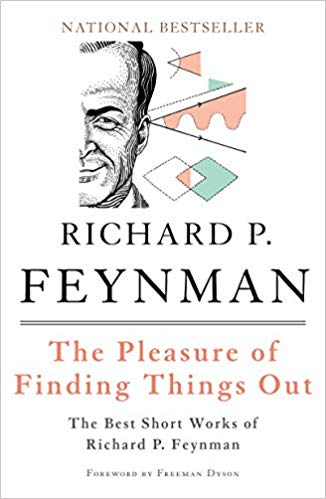






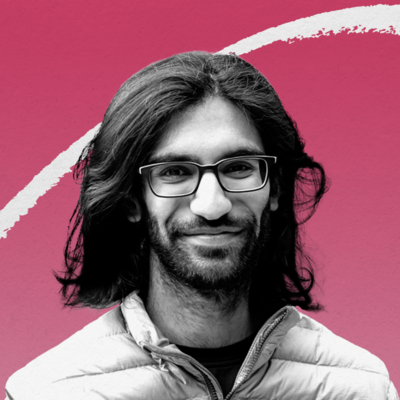

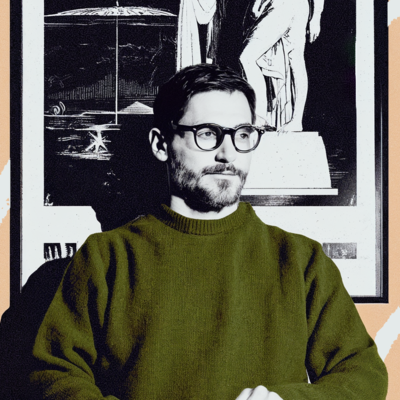

Comments
Don't have an account? Sign up!